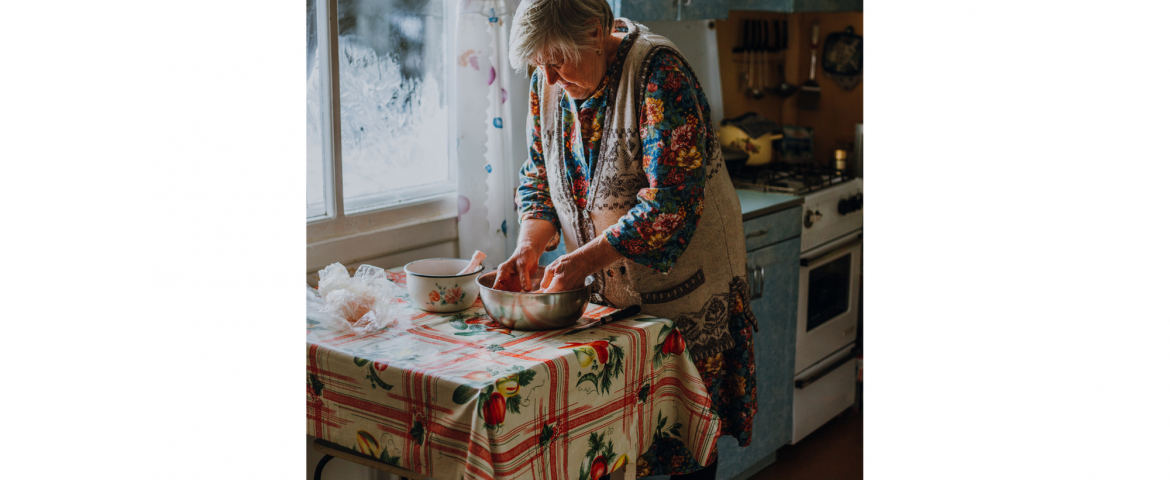I recently saw a film clip that was difficult to watch. In the scene, an older woman is shuffling around her kitchen, clearly in some mental and physical distress. The room is poorly lit as some light bulbs have probably burned out. The space is cluttered and dirty. She is sweating, short of breath and a little dazed as she tries to clean it up when the phone rings.
Her son is on the line and you can hear him say ‘Hi Mom, we’re not going to make it today. One of the kids isn’t feeling well.’
Meanwhile in the background smoke starts to seep out of the oven. She is visibly relieved and disappointed at the same time.
‘Are you doing okay Mom?’ the son asks. She makes her voice bright and says ‘Oh yes! I’m fine.’
Says the son, ‘Ok, well we’ll try to make it next month then, Goodbye.’
As she hangs up she turns and notices the smoke. Hurrying over to the stove she trips and falls against the hot surface burning herself quite badly. The scene then shifts to later that evening; she is sitting alone in her recliner crying, nursing her burned arm and hand, and looking scared and desperate. She doesn’t want to be a bother to her children and has been able to fool them because they are so preoccupied with their own busy lives and responsibilities.
Inevitably, most elderly minds and bodies become impaired. At a certain point, it becomes someone’s moral responsibility to make sure their loved ones are safe.
A personal caregiving story shared by our team member, Jennifer Dwight:
My mother had had a minor surgery after which she began to exhibit signs of dementia. I was in my thirties and had no experience taking care of anyone but myself. We found her a lovely independent living situation with the option for assisted living later on. Initially, I was still living my own life and figured she would be fine, though I moved closer to where she was to “keep an eye on her.”
One day, the facility director asked me to come to her office and said that my mother’s and my roles needed to switch. I would need to guide her instead of the other way around from now on. Initially, it was difficult to do this. My mother resisted but I became stronger as her dementia slowly progressed. After several years, she didn’t want or care to be clean. She sat in a chair almost all day staring out the window.
Meanwhile, the facility raised the rent every year and became prohibitively expensive and my mother needed more care. I made the decision to become her full-time caregiver and we moved in together. Over the next six years, I learned a lot about caregiving, patience, advocating, and slowly grieving the loss of my mother’s former self until she passed away in December of 2016.
I sometimes still can’t believe that I did it and know that caregiving is not for everyone. I’m grateful that I was so situated to be able to care for my mother and I gained an empathic understanding that I would not have, had I not experienced what I did.
– If you are a caregiver who needs support, check out aging.com
– If you are not sure if your elderly loved one is ok alone, assume that they are not.
– If you are an elderly person in need of help, we suggest you reach out for help from family, neighbors, friends, home health care services, local senior daycare, or your area senior services such as Senior Services of Southeastern Virginia.
As Certified Senior Move Managers and Professional Organizers, we at Ideal Organizing + Design serve the older adult community with great joy!

